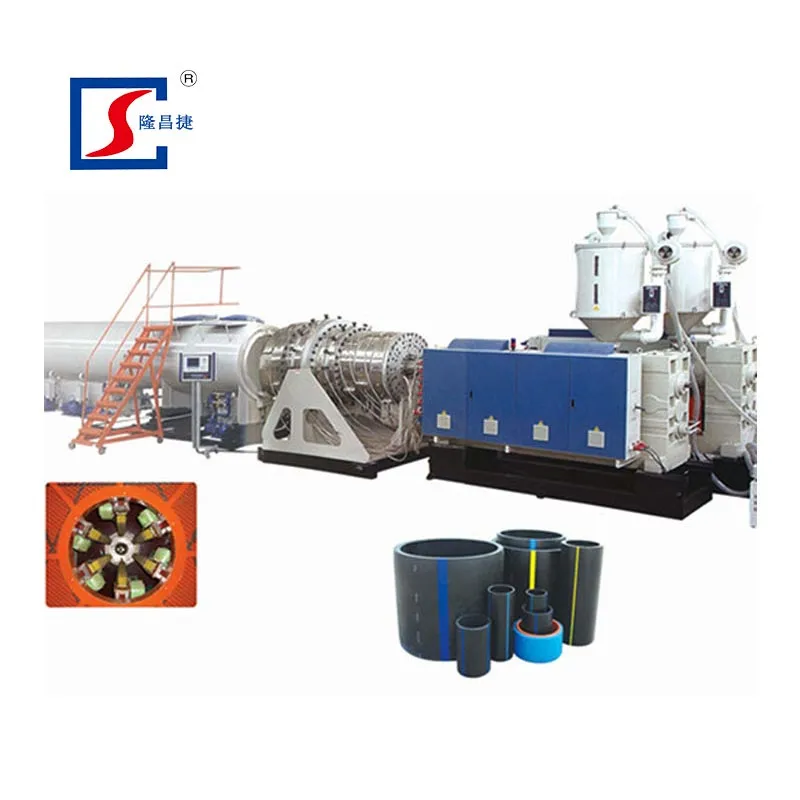An Introduction to Pipe Production Lines: Revolutionizing Manufacturing
2024-12-06
Introduction
Pipe production lines are at the heart of modern manufacturing, enabling the efficient production of pipes used in construction, agriculture, oil and gas, and countless other industries. These lines integrate advanced technology to produce pipes of various materials, sizes, and specifications. In this blog, we’ll explore the basics of pipe production lines and their key benefits.
What is a Pipe Production Line?
A pipe production line is a series of machines and equipment designed to manufacture pipes from raw materials. These systems often include steps such as material preparation, extrusion or welding, sizing, cooling, and finishing. Depending on the material, the production line may vary significantly in design and function.

Types of Pipe Production Lines
1. Plastic Pipe Production Lines
- Used to produce PVC, HDPE, and PPR pipes.
- Common in water supply, drainage, and cable protection systems.
2. Steel Pipe Production Lines
- Manufacture seamless or welded steel pipes.
- Critical for oil and gas transportation, industrial applications, and infrastructure.
3. Concrete Pipe Production Lines
- Create reinforced concrete pipes for large-scale drainage systems and sewage infrastructure.
Key Components of a Pipe Production Line
1. Extruder or Welding Machine
- Forms the pipe shape from raw materials.
2. Cooling and Sizing Systems
- Ensures the pipe achieves the desired diameter and smooth surface finish.
3. Cutting and Finishing Equipment
- Cuts pipes to required lengths and applies coatings or threads if needed.
4. Control Systems
- Automate and monitor production to maintain quality and efficiency.
Advantages of Pipe Production Lines
1. Efficiency: Automates the manufacturing process, reducing production time.
2. Precision: Produces pipes with consistent quality and accurate dimensions.
3. Scalability: Allows mass production of pipes to meet growing demand.
4. Versatility: Can produce a variety of pipe materials, sizes, and types.
Applications of Pipe Production Lines
- Construction: Water supply, gas lines, and drainage systems.
- Agriculture: Irrigation and greenhouse pipes.
- Industrial: Transport of chemicals, fuels, and gases.
Conclusion
Pipe production lines have transformed the manufacturing landscape, offering speed, precision, and adaptability. With advancements in technology, these systems continue to evolve, supporting the infrastructure and industries that power our world.


